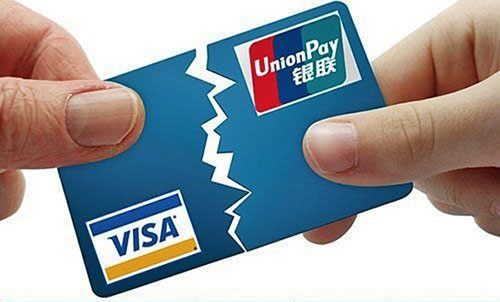|
from
InternationalMan Website
Recently we wrote about why it's a good idea to use a debit or credit card that isn't beholden to the US.
We got a lot of responses, which we attempt to address here.
See Outside Your Indoctrination
You might worry when driving your car about getting ticketed or humiliated by the cop, or when you file your tax forms.
You get harassed by the TSA when taking a flight, or you wait in never-ending lines at government offices. To stop money from reaching deemed "terrorists", governments in the West, particularly in the US, have increased control over the wealth and lives of their citizens.
Some rationalize all this away as "the price of freedom" or that "I've done nothing wrong, so I have nothing to hide."
The populace has been "taught" to look up to the government as the parent. The reality is that only a fool thinks that just because he has nothing to hide, he should walk around naked.
This indoctrination is your real prison - politically, psychologically, and spiritually. makes no sense
Why Should You Internationalize?
Your government today knows virtually everything about your finances, for all is tracked using your Social Security number and tax numbers.
Combined with your cellphone, Internet, and credit card usage, and the ability to analyze all of this data, they probably know more about you than you do yourself.
Chances are a good portion of your wealth is in electronic form. If all of your wealth is tied up in a single country, your government can - for whatever reason it finds convenient - with a flip of a switch freeze or confiscate everything: your bank accounts, your properties, and your investments.
If nothing else, a careless mistake - for which a bureaucrat will likely not even be admonished - can freeze your financial lives, leaving you with no resources left to fight a legal battle.
Moreover, what was done in Cyprus - freezing and confiscating from people's accounts to deal with a banking crisis - can happen anywhere.
The system is diseased beyond the point of being curable. The brittle structure of the government and people's increasing dependence on it makes the concept of the nation-state a dead man walking. Social media can initiate, build, and bring any public movement to a tipping point rather rapidly and precipitously.
Over the last few decades, people and capital have had the ability to become much more mobile.
For your financial safety, you should have a part of your wealth in locations that are far from your home government's jurisdiction.
If you're an American, internationalizing your banking even to Canada is a very good, small step. While the US can arm-twist Canada, the US's "control" is no longer a matter of a simple flip of a switch.
You also want access to a credit or debit card that the US government cannot control.
China and Hong Kong
To open an overseas account, it's best to find a bank that either has no branch in the US or is big enough that the US cannot exercise control over its overseas operations.
Moreover, you want a payment processing system that - unlike VISA, MasterCard, etc. - is outside the control and borders of the US.
Hong Kong and China helps you accomplish this.
Contrary to popular perception, China is a very easy place to visit. The immigration guy will likely not even look at you. You get to assess his performance when he's done, through a quick vote about his behavior.
In Hong Kong, most banks will open an account for you with a personal visit, even if you're an American. A valid passport and a simple proof of residence is all that they want.
You could also open an account with a counterparty bank in China while still in Hong Kong and vice-versa. Or you could take a short detour to a major Chinese city without a need for a visa to open a bank account in mainland China.
Once you have a bank account with, say, Bank of China in Hong Kong, it can also assist you with opening a bank account with it in mainland China. If you want to open accounts in both jurisdictions, starting with Hong Kong is generally the better option, in my opinion.
Consider these banks; the links will take you to sources that might help you decide: In order to obtain the most diversification benefits, you should open an account with a bank headquartered in Hong Kong or China whose presence is primarily limited to those two jurisdictions.
Your interest is in diversifying your risks from the Western monetary and legal system.
When you open an account in Hong Kong or China, you can also get access to China UnionPay, the Chinese payment processing system and an alternative to Visa and MasterCard.
Being a payment system based in China, China UnionPay helps you have a credit/debit card and payment processing system that cannot be frozen by the US. In other words, using China UnionPay helps diversify away the risks associated with the US's regulatory and political environment.
Singapore is another jurisdiction that respects your private property. However, opening a bank account there is known to be more difficult. Moreover, your payment processing system will be NETS, a system internal to Singapore.
For international payments, Singaporean banks offer China UnionPay only for credit cards. Obtaining a bank account in Singapore is becoming more difficult for nonresidents, which is a reason to get an account there sooner than later.
However, if you're attempting internationalization for the first time, I think Hong Kong is clearly what you should consider first.
|

